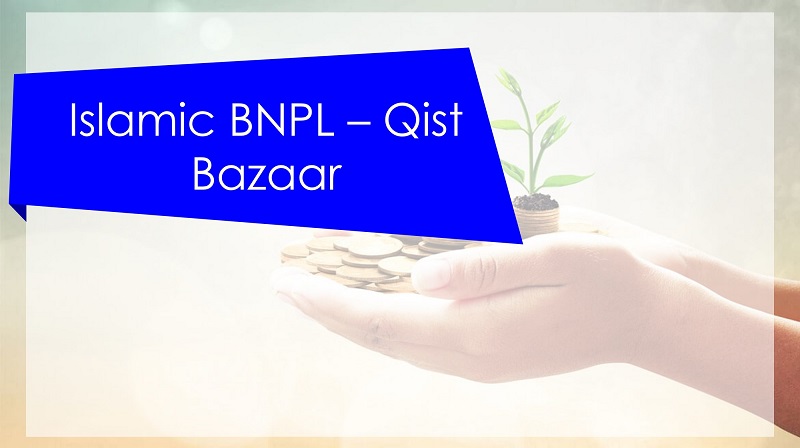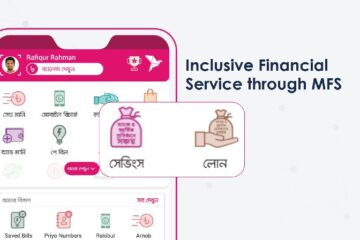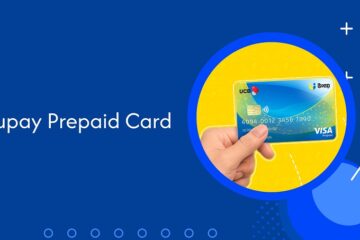Qist Bazaar is an emerging Islamic Buy Now, Pay Later (BNPL) platform designed to meet the growing demand for Shariah-compliant financing solutions in e-commerce. As BNPL gains popularity globally, Qist Bazaar introduces an ethical, interest-free approach rooted in Islamic finance principles, making it accessible to Muslims and others seeking a responsible financing option. This case study explores how Qist Bazaar operates, its business model, and the unique challenges and opportunities it faces within the Islamic finance and BNPL sectors.
Background
With the rise of BNPL as a preferred payment option in e-commerce, many conventional BNPL solutions charge interest on installments, making them incompatible with Shariah principles, which prohibit interest (riba) and speculative transactions (gharar). Qist Bazaar was established to fill this gap by offering interest-free, ethical financing to consumers who want to spread their payments over time in a way that aligns with Islamic law.
Qist Bazaar operates as a Shariah-compliant BNPL platform, partnering with merchants to offer deferred payment options at checkout, allowing customers to make purchases without immediate payment while remaining free of interest charges. It has reached a significant milestone that sets it apart in Pakistan’s financial landscape. Qist Bazaar is the first Buy Now Pay Later (BNPL) in Pakistan certified as a ‘Shariah-Compliant Company’ by the Securities and Exchange Commission of Pakistan (SECP). The major milestones Qist Bazaar achieved so far can be illustrated as below –

The first major milestone of Qist Bazaar was receiving investment from Bank Alfalah, one of the largest commercial banks in Pakistan. Bank Alfalah’s acquire a 7.2% stake in Qist Bazaar for a PKR140 million (US$502,950) deal. Besides, the bank had also signed an embedded financing agreement of up to PKR350 million (US$1.26 million) with Qist Bazaar. And recently the Islamic BNPL platform secured US$3.2 million Series A funding, led by Indus Valley and participated by Gobi Partners. Having secured that fresh venture capital funding, Qist Bazaar will expand its product portfolio and scale operations across Pakistan. The newly injected fund will also be channeled toward upgrading its technology infrastructure.
Qist Bazaar in Number
As per official information, 57 percent of Qist Bazaar’s customers earns less than Rs 45,000 per month, with 70 percent of all customers being under the age of 35 years. The most products of the platform include mobile phones, refurbished laptops, refrigerators, LED TVs, motorcycles, and ceiling fans.
After it starting operation in 2021, the Islamic BNPL platform has disbursed US$12 million through over 55,000 product-based financing in three years. It has said that its earnings before interest, taxes, depreciation and amortization remained in the black since its establishment. Qist Bazaar offers Islamic Mowsawama flexible payment plans tailored to each customer’s budget with spread payments over 6, 12, or 18 months. Additionally, Qist Bazaar provides free home delivery, with most orders delivered within 48 hours of purchase, whether made online or in-store.

Currently, the company is already present in Karachi and Lahore. It will use proceeds from the fundraising exercise to increase its current capacity as well as establish a presence in Islamabad, Sukkur, Faisalabad and Multan.
Business Model and Operations
Qist Bazaar’s business model is structured around Islamic finance principles, emphasizing transparency, fairness, and interest-free transactions. Here’s how it works:
1. Deferred Payment Model
Qist Bazaar uses an Islamic financing concept known as Musawamah, where the platform purchases goods on behalf of the customer and then sells them back to the customer at an agreed-upon markup, with no interest involved. This markup is disclosed upfront, so the customer knows exactly what they will be paying, spread across multiple installments.
- Markup Price: Qist Bazaar earns revenue by charging a markup on the original purchase price, agreed upon at the point of sale. This markup is fixed, with no additional costs or penalties for late payments, ensuring transparency and compliance with Shariah principles.
2. Merchant Partnerships
Qist Bazaar partners with a wide range of merchants, including retailers, electronics stores, and e-commerce platforms, enabling them to integrate Qist Bazaar’s BNPL option at checkout. Merchants benefit by offering customers an interest-free payment solution, which increases conversion rates and average order values.
- Integration: Merchants can integrate Qist Bazaar’s BNPL option into their online checkout process or POS systems in physical stores, providing flexibility for both e-commerce and brick-and-mortar retailers.
- Increased Sales and Customer Reach: By offering an Islamic BNPL option, merchants can tap into a growing market of Muslim consumers and others who seek ethical financing alternatives.
3. Compliance and Shariah Oversight
Qist Bazaar collaborates with Shariah scholars and Islamic finance experts to ensure its operations align with Islamic finance principles. A Shariah advisory board oversees all financing structures, product offerings, and customer communication to maintain transparency and adherence to Islamic law.
- Certification: Qist Bazaar holds certifications from Shariah boards, which is crucial for building trust among Muslim customers who prioritize ethical financial products.
- Regular Audits: Shariah audits are conducted periodically to verify that all processes remain compliant with Islamic guidelines.
4. Revenue Model
Unlike conventional BNPL services that earn revenue from interest charges or late payment fees, Qist Bazaar generates revenue through merchant fees and markup rates on each sale. The revenue model is designed to be transparent and fixed, with no hidden charges.
- Merchant Fees: Merchants pay a small transaction fee to Qist Bazaar for offering the BNPL service. This fee is justified by the increase in sales volume and customer engagement achieved by providing a deferred payment option.
- Fixed Markup: Customers pay a fixed markup on the original price, which is agreed upon at the time of purchase, with the cost spread over the installment period.
Customer Experience
Qist Bazaar prioritizes a simple, transparent user experience that allows customers to complete their purchases with confidence in the ethics of their transaction. Here’s a typical customer journey on the Qist Bazaar platform:
- Select Product and Checkout: Customers choose Qist Bazaar as the payment option when checking out on a partner merchant’s site or app.
- Transparency at Checkout: Customers are shown the total amount due, with a clear breakdown of the markup and installment amounts, ensuring they understand their payment obligations upfront.
- Installment Payments: The purchase price is divided into equal, interest-free installments. Customers can select a repayment period that best suits their needs, typically ranging from 3 to 12 months.
- Flexible Payment Management: Through the Qist Bazaar app, customers can track their payment schedule, view remaining balances, and manage payments seamlessly.
Market Position and Target Audience
Qist Bazaar appeals to a wide demographic, from young Muslims seeking ethical finance options to unbanked and underbanked populations in regions where Islamic finance is valued but limited. Its unique market positioning offers advantages:
- Muslim Millennials and Gen Z: Young consumers seeking convenience and flexible financing that aligns with their faith and ethical values.
- Ethical Consumers: Individuals, both Muslim and non-Muslim, who prioritize ethical financial practices, transparency, and social responsibility.
- Emerging Markets: Qist Bazaar targets markets where traditional credit is inaccessible or costly, offering an inclusive option for underserved communities.
Challenges Facing Qist Bazaar
While Qist Bazaar has identified a promising market and has built a business model around Islamic principles, it faces several challenges:
1. Limited Awareness and Education
One of the main challenges is consumer awareness. Although BNPL is growing in popularity, many potential users may be unfamiliar with the concept of Islamic BNPL or may be skeptical of Shariah compliance claims. Qist Bazaar needs to invest in education and awareness to explain the benefits and mechanics of its Shariah-compliant BNPL service.
2. Competition from Conventional BNPL Providers
Mainstream BNPL providers such as Afterpay, Klarna, and Affirm already have strong market presence. Qist Bazaar must differentiate itself by emphasizing its Shariah-compliant model and ethical approach, which appeal to a niche but growing market segment.
3. Regulatory Hurdles
Islamic FinTech companies, including Qist Bazaar, must navigate a complex regulatory landscape. The lack of specific regulatory frameworks for Islamic BNPL products in many markets can create compliance challenges, especially regarding licensing, consumer protection, and Shariah compliance standards.
4. Merchant Integration and Network Expansion
For BNPL services to succeed, a broad merchant network is essential. Qist Bazaar faces the challenge of signing on a diverse range of merchants and ensuring smooth integration with their payment systems. Additionally, expanding into new markets requires local partnerships and infrastructure to support growth.
Opportunities for Growth
Qist Bazaar is well-positioned to capture several growth opportunities in the Islamic finance and FinTech sectors:
1. Expansion in Muslim-Majority Markets
There is a growing demand for Islamic finance in countries with large Muslim populations, such as Indonesia, Malaysia, Saudi Arabia, and Bangladesh. By entering these markets, Qist Bazaar can tap into a substantial and relatively underserved customer base.
2. Financial Inclusion Initiatives
Qist Bazaar’s interest-free BNPL solution aligns well with financial inclusion initiatives, especially in regions where credit accessibility is low. Collaborating with governments and NGOs focused on financial inclusion could provide new avenues for growth and development.
3. Digital Financial Literacy Programs
Investing in digital financial literacy programs can help Qist Bazaar educate potential customers about Shariah-compliant financing, building brand awareness and trust. By helping users understand Islamic finance principles, Qist Bazaar can position itself as a leader in ethical finance.
4. Partnership with Islamic Financial Institutions
Collaborating with established Islamic banks and financial institutions can strengthen Qist Bazaar’s credibility and expand its market reach. Partnerships with recognized brands in Islamic finance can help build trust and access new distribution channels.
Concluding Thoughts
Qist Bazaar stands as a pioneer in the Islamic BNPL space, offering interest-free, Shariah-compliant financing options that meet the needs of ethical consumers. By addressing the unique needs of Muslim consumers and others seeking ethical alternatives, Qist Bazaar demonstrates how Islamic FinTech can provide inclusive, transparent, and responsible financial solutions. While it faces challenges in awareness, regulatory compliance, and competition, Qist Bazaar’s model represents a promising future for Islamic BNPL and the broader Islamic finance industry.










